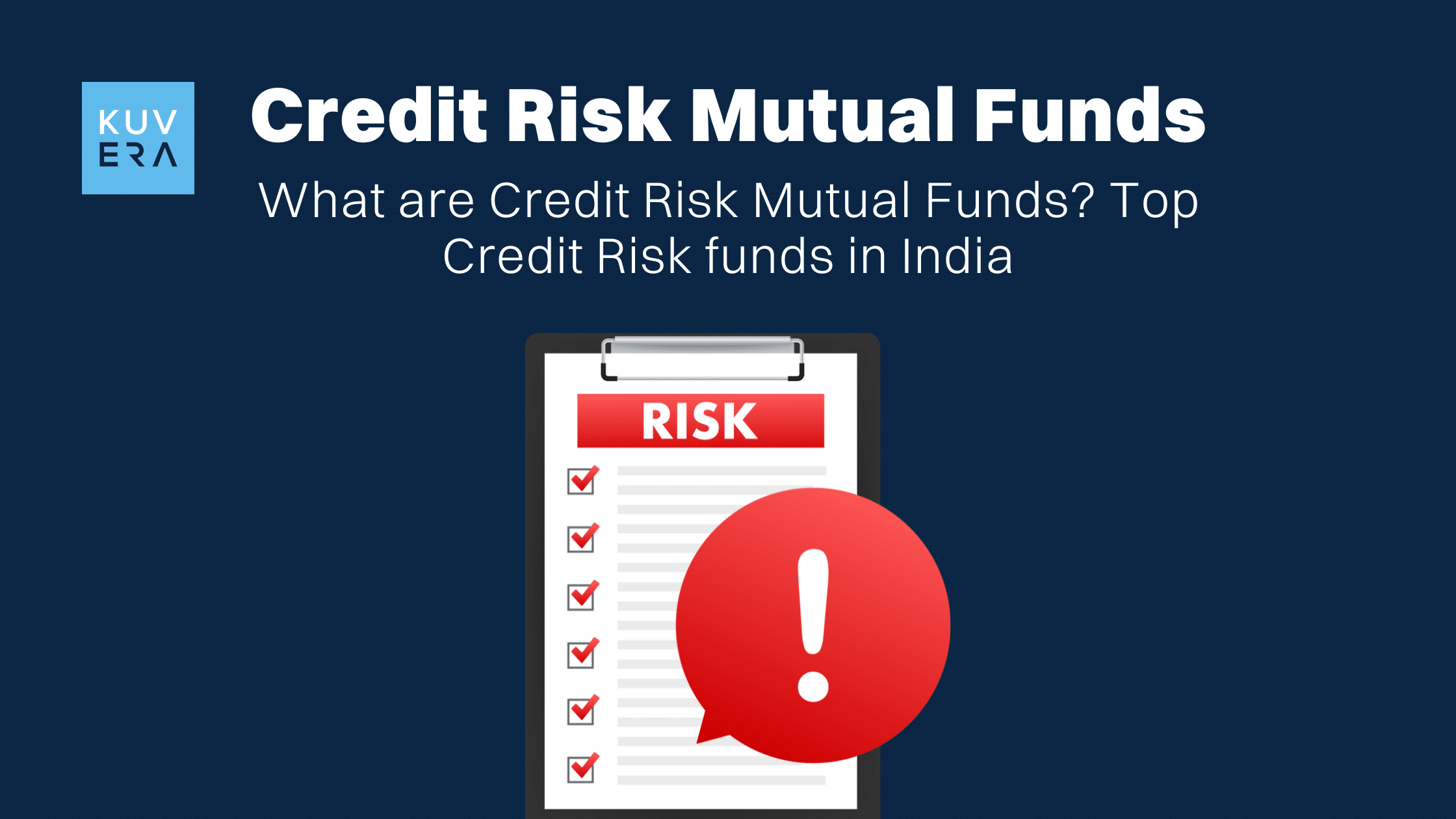The Mutual Fund Industry has a variety of Schemes in India Diversified Across Different Categories Defined by the Securities and Exchange Board of India (Sebi) LIKE, Equity, Debt, HYBRID, HYBRID, Solutions-Oriented and Other Schemes. Credit Risk Mutual Funds are a Specific Category of Debt Mutual Funds that Invest Predominantly in Lower-Rated Corporate Bonds, AIMING TO AIMING TE ACHAREVE HIGHER RETURANS By Accreat Incripting
According to the sebi, these funds are mandated to allocate at least 65% of their assets to corporate bonds rated ‘aa’ or below. This strategy seeks to capitalise on the higher interest rates offered by lower-rated instruments, compensating for the elevated risk of default.
The risk arises have been lower-rated bonds have a higher probability of failing to meet their debt obligations, but in return, they offer a premium over Safer bonds.
Main features of Credit Risk Mutual Funds
1. Higher yield potential
These funds aim to generate better returns compared to high-rated debt funds due to the higher interest rates on low-rated bonds.
2. Professional Management
Fund manners Assess the Creditworthiness of Issuers and Diversified Investments to Mitigate Risk.
3. Moderate to High Risk
Since these funds investment in lower-rated security, they carry default risk and liquidity risk.
4. Asset Allocation
A minimum of 65% investment in corporate bonds rated ‘aa’ or below.
5. Risk Profile
Higher Credit Risk Due to Exposure to Lower-Rated Securities, Which May Result in Increased Volatily.
6. Liquidity
Generally open-ended, allowing investors to enter or exit the fund at their convenience, subject to exit loads, if any.
7. Taxation
Gains are taxed based on the holding period as prescribed by the regulatory authority from time to time.
Who Should Invest?
Credit Risk Mutual Funds are suitable for investors who:
- Have a moderate to high risk appetite;
- Are willing to stay invested for at least 3 years to benefit from taxation and mitigate short-term market fluctuations; and
- Seek Higher Returns from Debt Funds and Can Tolerate Occasional Volatily.
While these funds can enhance portfolio yields, they require careful selection and continuous monitoring of credit ratings and Economic Conditions.
Let us have a look at top five credit risk mutual funds available on kuvera:
Top Credit Risk Mutual Funds in India
The following Top-Performing Credit Risk Mutual Funds Were Selected Based On Returns, Risk Factors, and Expense Ratios. While returns are a key factor, an investment also evaluate expenses ratio and portfolio Quality before making a decision.
| SR. No. | Scheme | Return | Expense ratio | |
| 1-Year | 3-Year | Ter | ||
| 1 | DSP Credit Risk Growth Direct Plan | 22.14% | 16.63% | 0.40% |
| 2 | SBI Credit Risk Growth Direct Plan | 8.69% | 7.77% | 0.89% |
| 3 | Axis Credit Risk Growth Direct Plan | 8.59% | 7.38% | 0.80% |
| 4 | Uti Credit Risk Growth Direct Plan | 8.53% | 7.12% | 1.15% |
| 5 | Bandhan Credit Risk Growth Direct Plan | 8.17% | 6.68% | 0.68% |
Source: Kuvera, Accessed on 18/03/2025
Performance and Fund-Specific Analysis
1. DSP Credit Risk Growth Direct Plan – Top Performer
Why Invest?
This fund stands out as the best performance in the credit risk category. It has delivered exceptional returns, reflected strong bond selection and favorite market conditions. The low experiment ratio (0.40%) further enhances net returns.
Best for
Investors Seeking High-Growth Potential in Credit Risk Funds While MainTaining Cost-Efficiency.
2. SBI Credit Risk Growth Direct Plan – Stable Performer
Why Invest?
This fund offers a steady performance track record while mainTaining a Moderate Risk Profile. SBI’s Strong Fund Management Practices Ensure a Well-Diversified Portfolio.
Best for
Investors Preferring a Balanced Approach to Credit Risk With Steady, long-term growth.
3. Axis Credit Risk Growth Direct Plan – Consistenc
Why Invest?
Provides Reliable returns with a Well-Structured Debt Portfolio. The Moderate Expense Ratio Ensures Better take-Home Gains.
Best for
Investors Seeking Stability and Predictable Returns over the Medium Term.
4. Uti Credit Risk Growth Direct Plan – Higher Cost, Similar Returns
Why Invest?
Uti Credit Risk Fund has delivered consistent returns but carries the Highest Expense Ratio (1.15%), Affecting the Net Gains.
Best for
Thos who Trust the Uti Brand and seek a Well-Establed Fund House Despite Higher Costs.
5. Bandhan Credit Risk Growth Direct Plan-Low-Cost Option
Why Invest?
The lowest exchange ratio amon the funds makes it a cost-effective investment choice. However, returns are slightly lower.
Best for
Cost-Conscious Investors Looking for Reasonable returns without excessive experiences.
Benefits of Investing in Credit Risk Funds
Investing in Credit Risk Funds Can Offer Several Advantages:
1. Higher yield potential
By investment in lower-rated corporate bonds, these funds aim to provide higher interest income compared to funds focusing on higher-rated securities.
2. Diversification
Including Credit Risk Funds in Your Portfolio Can Diversify Your Fixed-Income Investments, Potentially Enhancing Overall Returns.
3. Professional Management
These funds are managed by experienced manners who Conduct Thorough Credit Assessments to Mitigate Risks Associated with Lower-Rated Instruments.
Considerations Before Investing
Before allocating funds to credit risk mutual funds, consider the following,
1. Risk Appetite
Ensure that your Risk Tolerance Aligns with the Higher Credit Risk Associated with these Funds.
2. Investment Horizon
A longer investment Horizon (Typical Over Three Years) is advisable to mitigate short-term Volativity and Benefit from favorite taxation.
3. Fund Performance
Evaluate the fund’s Historical performance, keeping in mind that Past Performance does not guarantee future results.
4. Interest Rate Trends
Credit Risk Funds Perform Better in a Declining Interest Rate Environment.
5. Liquidity & Default Risk
Diversification Within the Fund Reduces Concentration Risk, But Defaults Can Still Occur.
6. Expense Ratio
Consider the Fund’s Expensese Ratio, as Higher costs can erode returns over time.
7. Economic Conditions
Be aware that economic downturns can advercely affected companies, potentially impacting the fund’s performance.
Wrapping up
Credit Risk Mutual Funds Present an options to enhance portfolio yields by accepting Higher Credit Risk Through Investments in Lower-Rated Corporate Bonds. However, it’s Crucial to Align Such Investments With Your Risk Tolerance and Investment Objactives. As the adage goes, “Higher risk often accompanes the pursuit of higher returns.” Therefore, Conduct Thorough Due Diligence and Consult with Financial Advisors to Ensure these funds Suit your Financial Goals. Also, Don’t forget to read all scheme related documents carefully Before Investing.
Interested in how we think about the markets?
Read More: Zen and the art of investment
Watch here: Learn about the F & O Craze in India



